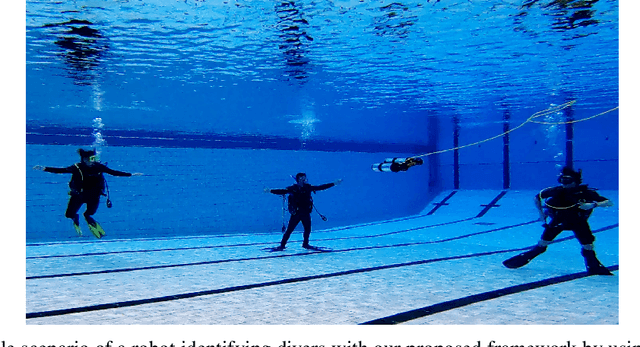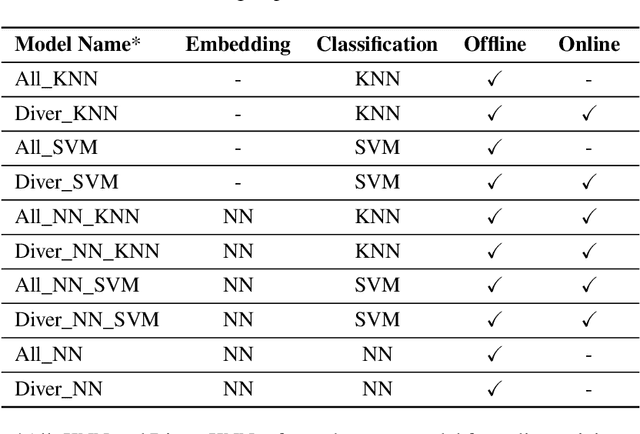Diver Identification Using Anthropometric Data Ratios for Underwater Multi-Human-Robot Collaboration
Paper and Code
Sep 29, 2023



Recent advances in efficient design, perception algorithms, and computing hardware have made it possible to create improved human-robot interaction (HRI) capabilities for autonomous underwater vehicles (AUVs). To conduct secure missions as underwater human-robot teams, AUVs require the ability to accurately identify divers. However, this remains an open problem due to divers' challenging visual features, mainly caused by similar-looking scuba gear. In this paper, we present a novel algorithm that can perform diver identification using either pre-trained models or models trained during deployment. We exploit anthropometric data obtained from diver pose estimates to generate robust features that are invariant to changes in distance and photometric conditions. We also propose an embedding network that maximizes inter-class distances in the feature space and minimizes those for the intra-class features, which significantly improves classification performance. Furthermore, we present an end-to-end diver identification framework that operates on an AUV and evaluate the accuracy of the proposed algorithm. Quantitative results in controlled-water experiments show that our algorithm achieves a high level of accuracy in diver identification.
 Add to Chrome
Add to Chrome Add to Firefox
Add to Firefox Add to Edge
Add to Edge